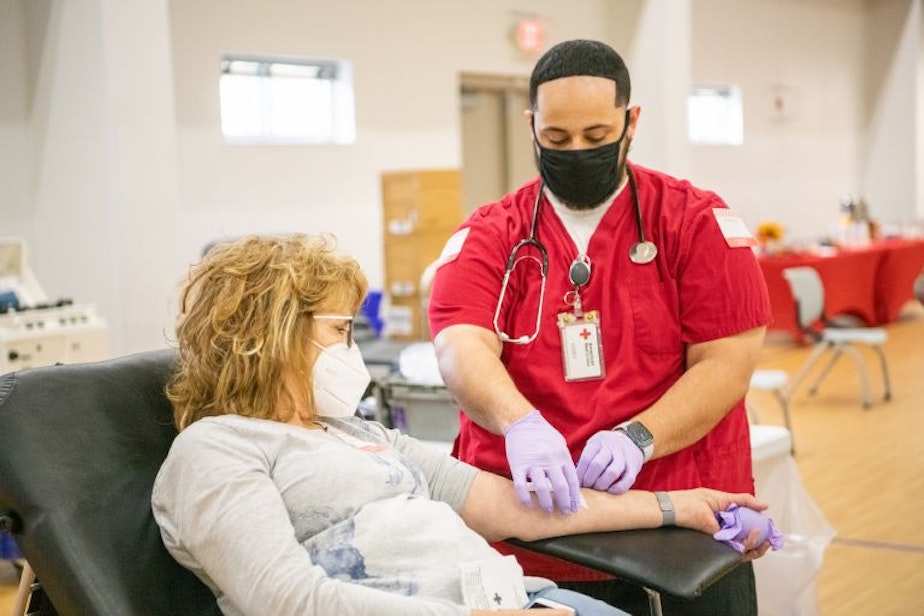Scarcity of blood collectors contributing to 'critical' shortages in blood supply

Over the course of this year, you've no doubt heard about labor shortages throughout the economy. Waiters are scarce. Hospitals are short-staffed. There are not enough snow plow drivers. Add another job category to the list. It's an important one: blood collectors.
The American Red Cross says blood supplies going into the holidays are "dangerously low." One reason is that fewer donors are coming forward during the pandemic. Another is short staffing among blood collection specialists, also known as phlebotomists.
"We have quite a few openings, more than I have ever seen here at Bloodworks," said Vicki Finson, executive vice president of blood services at Seattle-based Bloodworks Northwest.
Finson says Bloodworks is down about 15 percent from full staffing of its collection network, which spans from Bellingham to Eugene.
The nonprofit is doing things other companies short on workers are doing, such as raising pay, introducing retention bonuses and now offering sign-on bonuses of $2,500.
Sponsored
Eastern Washington blood collection nonprofit Vitalant is offering $5,000 sign-on bonuses to attract more staff.
That nonprofit, along with the Red Cross and Bloodworks, also offers paid training.
"Like many employers across the country, the Red Cross is currently experiencing staffing challenges in some areas," Pacific Northwest Region Red Cross spokesperson Betsy Robertson said in an email. "We are working as quickly as we can to address this challenge by actively recruiting phlebotomists who want to be part of our lifesaving mission."
Robertson said the regional Red Cross chapter plans to hold a hiring fair in Vancouver, Washington, early next month. (Time: 3-7 p.m., January 13; location: 5109 NE 82nd Ave, Vancouver, WA 98662)
Finson said Bloodworks is prioritizing staffing of its twelve permanent donation centers. That leaves fewer workers to staff pop-up blood drive locations, which have played a vital role to restock the shelves of blood banks during the pandemic.
Sponsored
Finson said entering the blood collection profession does not require a medical degree — or any college degree, for that matter — but prior work history in a job involving customer service is preferred.
"It is a really rewarding job," Finson said. "When you go home at the end of the day, you know that hundreds of people are transfused every day because of your work and their lives are saved. That's really powerful."
On Monday, three national groups issued a joint statement to underscore the urgency of bringing in more blood donors. The call to action went out under the banner of the Association for the Advancement of Blood & Biotherapies, the trade group America's Blood Centers and the American Red Cross.
"Blood centers across the country are reporting less than a one-day's supply of blood — a dangerously low level," the joint statement said. "If the nation's blood supply does not stabilize soon, lifesaving blood may not be available for some patients when it is needed."
This Saturday, December 18, in Oregon and Washington is State Blood Donor Day. To set a tone for the weekend, Bloodworks Northwest recruited a range of notable volunteers to donate blood. Washington Lt. Gov. Denny Heck, Commissioner for Public Lands Hilary Franz and Congresswoman Marilyn Strickland are among those with appointments to give blood in Olympia on Friday. Eugene Mayor Lucy Vinis plans to drop in and give at her city's donation center.
Sponsored
It is easy to make an appointment to give blood. Donation centers appreciate it when people make an advance reservation to ensure COVID-19 room capacity limits can be observed at their facilities. [Copyright 2021 Northwest News Network]

